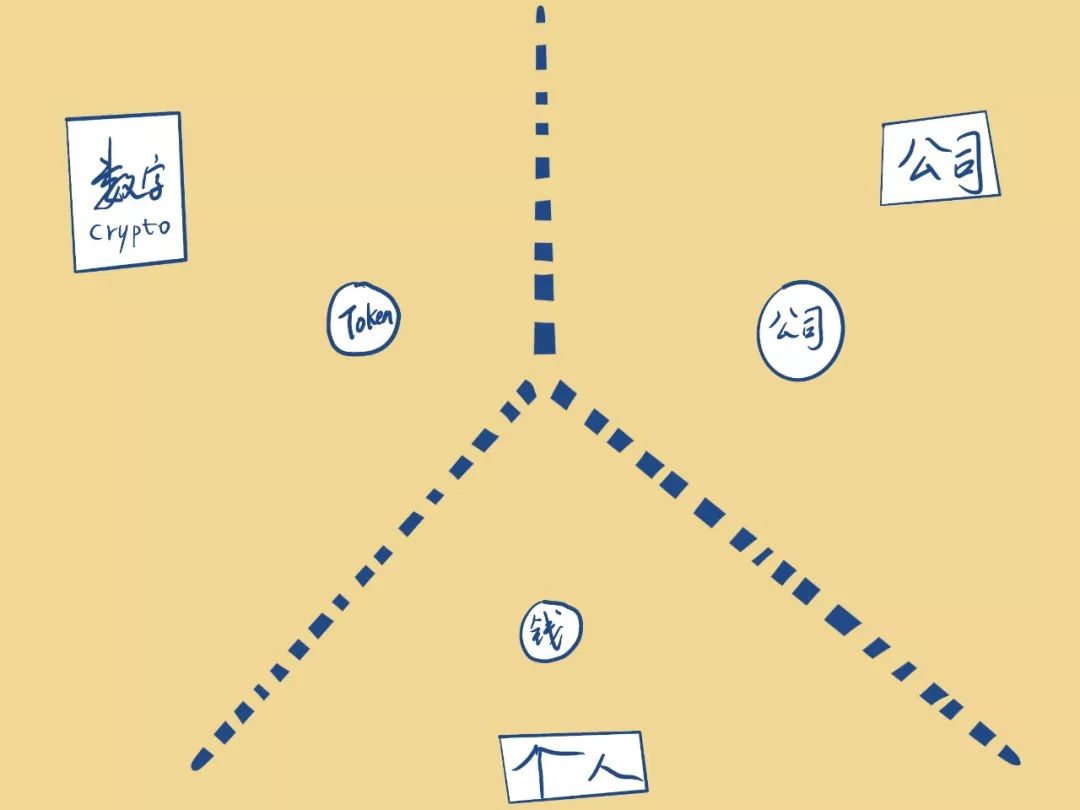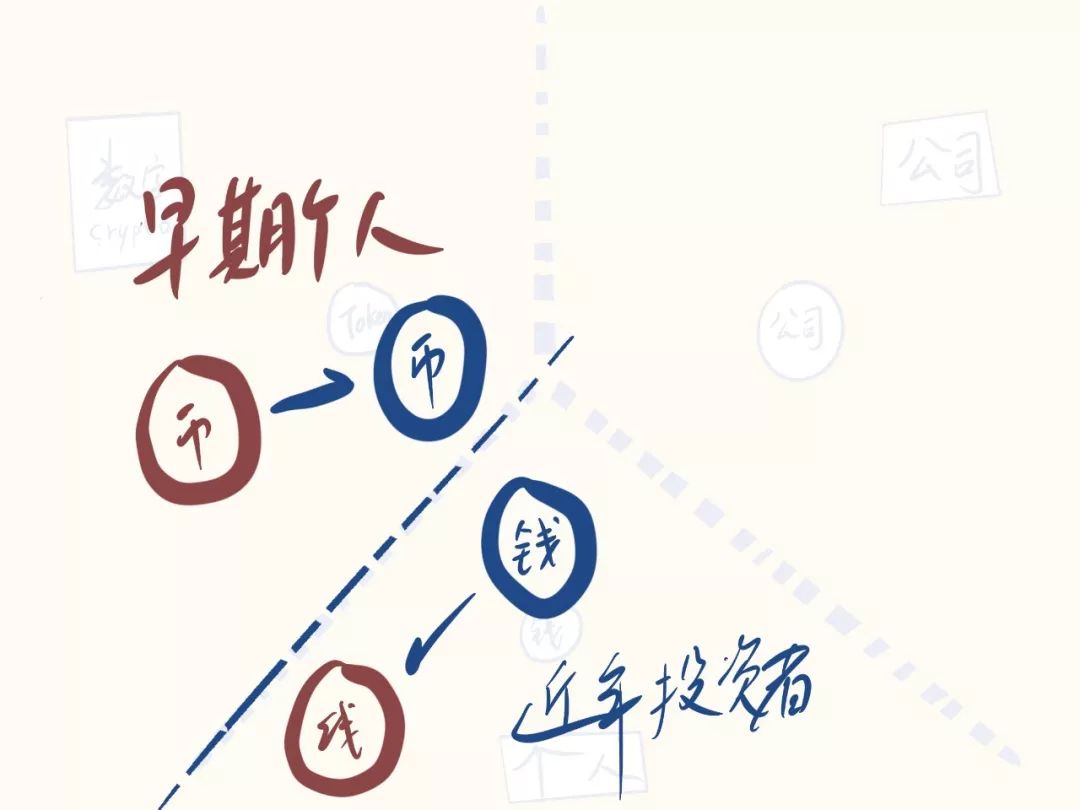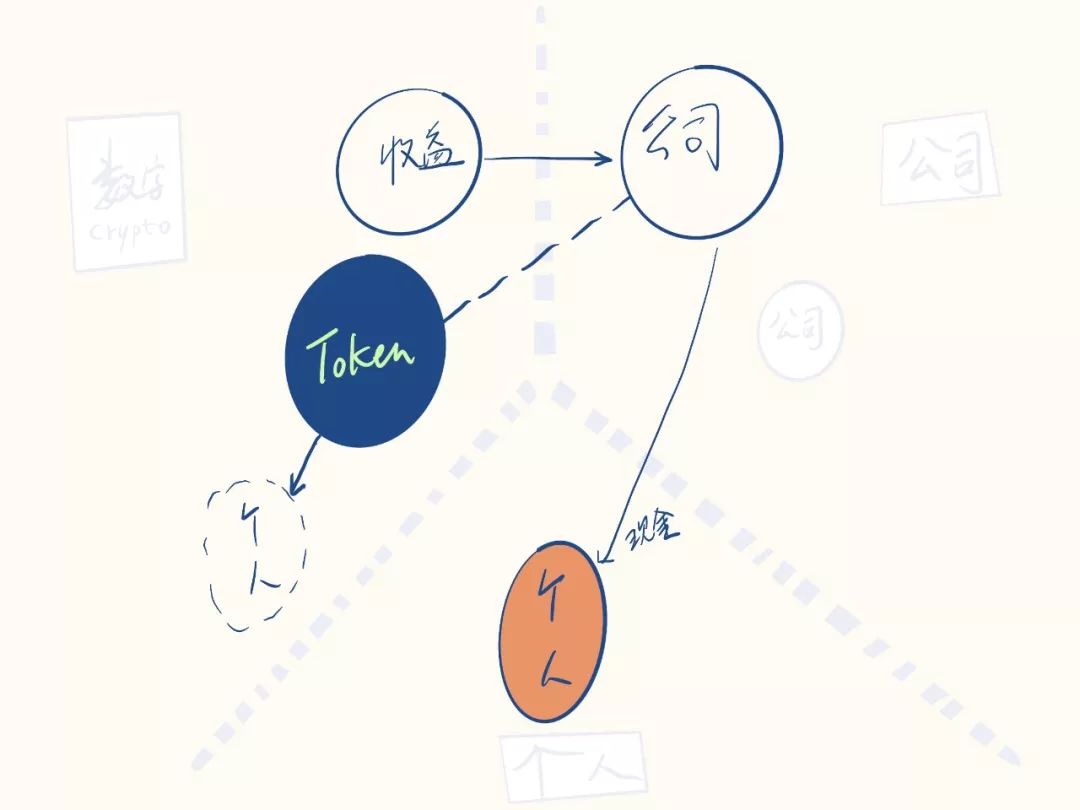Babbitt column | What does Facebook Libra and Bitcoin reload with $10,000?
Personal wealth space, corporate wealth space and digital wealth space

Facebook launched Libra, and Bitcoin weighed $10,000 (today's $11,000). Therefore, let me take my attention away from the blockchain technology of primary concern and try to look at it from the perspective of wealth.
To date, digital assets (Cypto Encrypted Assets) remain an unreliable alternative asset, and the scale is still small, now at $336 billion, about one-third of Apple's market capitalization, 60% of which is Bitcoin. Compared with the real estate value of a major city in the world, this wealth value is still small. But if it is not so grand vision, standing in a small field and personal perspective, this is already a huge amount of wealth. Therefore, we can also see it from a wealth perspective.
- Half a year has skyrocketed nearly four times, and Bitcoin has broken the $11,000 mark! But if you don't understand these things, you will…
- Deep Interpretation of the White Paper – Move: A New Programming Language for Facebook Libra Blockchain
- Zhu Jiaming as the chief of the digital economy leader class | strong mentor lineup, waiting for nothing
For a long time, the human wealth space is actually divided into two parts: individuals and companies. Although the Internet has been developed for many years, it is mainly a corporate system with a small amount of assets in digital form but not in scale. The trend of bitcoin began seems to be opening up the digital space (Cypto space). Therefore, it becomes three spaces (as shown):
Individual (wealth space)
Company (wealth space)
Number (wealth space)
In order to facilitate the understanding of the emerging digital wealth space, we first look at the situation of only "individual" and "company".
01
Ordinary personal vs company
If a person is a wage earner, then he has only a weak connection with the company's wealth space, and can even say that there is no connection. He exists only in the space of personal wealth, which is the case for most people.
In this case, the connection between him (this person) and the company's wealth space is:
- He works for the company in exchange for salary.
- He uses money to buy products or services from various companies.
- He buys things that are made and sold by the company and have asset characteristics such as real estate.
Of course, he may also have a very shallow correlation with the company's wealth value, and feel the fluctuation of the company's wealth value:
- Get the company's option incentives for the company's services.
- Investing in stocks in the securities market.
Of course, individuals may also get other ways to get wealth. For example, he may collect a piece of art, and after ten years, the artist is booming, and the price of art has skyrocketed dozens of times. But these are not the main phenomena of economic society.
02
Small business owner vs company
Even if a person is just a small business owner, his relationship with the company's wealth space is not the same as that of senior managers and the company's wealth space. He can feel the huge fluctuations in the company's wealth space.
Next, the small business owner/entrepreneur we are talking about refers to the person who holds the company's equity.
Taking a small business owner as an example, his connection with the company's wealth space is very complicated and frequent:
- He invested in a company that holds the company's equity and also bears the corresponding obligations of the shareholders of the limited liability company.
- When the company is not developing smoothly, he may have to continuously invest funds and use personal assets as collateral to borrow funds to maintain the company's development.
- In the case of a smooth development of the company, he can get wage income, dividend income, and invisible income in the form of corporate expenses (such as his travels sometimes difficult to distinguish between public and private).
He seems to hold the company's equity, but it is hard to say whether the value of the company's equity is positive or negative. For many small business owners, the cancellation of the company or the retirement of the company transfer, can tell that most of the wealth into the personal space is not until the last moment is uncertain.
To put it simply: the value of a company's equity is highly volatile. The value of the company's equity is on paper, and it is only when the bag is safe. It corresponds to the value in the personal wealth space.
03
Entrepreneur vs company
Enterprises with a small number of entrepreneurs are more successful, and there is more contact between personal wealth space and corporate wealth space.
For some entrepreneurs, they may sell all or part of the company's equity and get cash. At this time, there are two ways to deal with cash: returning cash back to the personal wealth space, which usually requires a large amount of tax burden. . Keep cash in the company's wealth space and continue to invest and transfer in the company. Many of the practices of family wealth management are actually moving in the space of personal wealth and the wealth of the company.
For the part of the entrepreneurs at the apex, their company may become a public company, and at this time, their wealth began to “qualify”. Take a founder who holds more shares in the company as an example:
- He can cash in part of the cash and enter the personal wealth space for consumption and other purposes.
- Most of his wealth is still locked in the company. Even if these shares are tradable, in fact he could not sell them in the secondary market without affecting the company.
- After he sold the company's shares, most of the funds were still in the company's wealth, and would not be transferred to the personal wealth space.
To say "quality change" is that his wealth has begun to have a clear measure. Of course, it is still highly volatile.
04
Personal wealth space vs digital wealth space
The company's wealth space and digital wealth space are currently in a relatively simple state: the company invests in new business, creates "encrypted digital assets", holds assets, and exchanges other assets.
Although the blockchain has emerged, there are many improvements to the organization of (limited liability) companies, but it must be said that non-personal limited liability companies are still the best way to combine multiple people.
More interesting is the connection between personal wealth space and digital wealth space. There have been two main links before (we don't talk about high speculators):
- Participate in mining. Turn the mining machine fee/electricity fee into coins and then the coins.
- Early purchase of mainstream currencies such as bitcoin, and coins.
For these early participants, they are actually special cases, a small amount of money is converted into mainstream currency, and then this part of the mainstream currency becomes a huge wealth of digital space. And, as the transaction becomes smoother, this part of the wealth can be easily transformed into the personal wealth space. For this type of person:
Total wealth = personal wealth + digital wealth
Although it is still in the early stages of the whole trend, unlike the earliest people, the experience of the past few years is that after the conversion of cash into a representative of the digital wealth space, the book value of digital wealth experienced tremendous fluctuations.
This group of people is only "exchanged" with certain individuals who are already in the digital wealth space.

In terms of French currency, many people may still be in a state of loss. For them, the problem is:
Should the money of personal wealth space be turned into the currency of digital wealth space?
In the current situation of various projects, this is questionable. A large number of projects do not create value, and there is no opportunity to create value in the future. That is to say, they are only a small part of people to take the wealth of others.
05
A case across three wealth spaces
This case can be a typical digital asset related company.

It has its own shareholding structure in the company's wealth space, which means that the relevant shareholders and VCs have book wealth.
The company acquires digital assets by providing the services (transactions) required for the digital space.
The company issued TOKEN (corresponding to its own value) and used a pass to motivate various participants.
Such a structure has little effect on companies, company shareholders, and individuals, as long as they are willing to hold highly volatile digital assets. If the company is engaged in a business that is not deceptive, the only thing that seems to be damaged is the country that collects taxes from the boundaries of the personal wealth space and the company's wealth space.
Taking these three wealth spaces to compare, one interesting finding is:
Most ordinary people do not understand the huge volatility of the company's wealth space. And now the digital wealth space seems to be similar to the stock market. The stock market is a representation of a small volatility corporate wealth space. In fact, the price volatility of digital assets is much greater than the company's wealth fluctuations.
Bitcoin is the representative of this volatility, and it now only has the function of value storage.
Facebook Libra actually wants to create a currency that can be “understood” in personal space, that is, it is not so volatile, and can be used as a “unit of measure” and a “transaction intermediary”. There have been a lot of attempts to start from the digital space, and Facebook Libra is the first attempt from the company's wealth space.
* It is generally believed that money has three functions at the same time: a medium of exchange, a unit of account, and a store of value.
Author: Fang Jun
Source: Fangjun Reading Club (WeChat Public Account)
We will continue to update Blocking; if you have any questions or suggestions, please contact us!
Was this article helpful?
93 out of 132 found this helpful
Related articles
- PoS, DPoS, PBFT… Innovation consensus, PoW is outdated?
- What does the wealth of the cryptocurrency field mean?
- Bloomberg: Bitcoin bull market pushes Asian encryption-related listed companies to rise
- Ernst & Young Blockchain Supervisor: Ethereum will be the largest blockchain, and 99% of cryptocurrencies face compliance issues
- Is the Morgan coin finally coming? JPMorgan Chase announced that it will start trial operation as early as this year
- Iranian Ministry of Energy official: involved in bitcoin mining or power outage
- False websites open Libra pre-sales, fraudsters receive IQ tax





